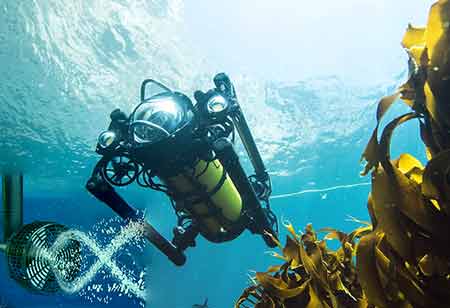

Thank you for Subscribing to Agri Business Review Weekly Brief

Fish farmers seek innovative solutions to combat parasites and protect fish stocks in aquaculture. Cleaner fish, robots, probiotics, and vaccines are among the weapons being explored to ensure sustainable parasite control.
In a battle against thriving parasites, fish farmers actively seek innovative solutions to protect their stocks and ensure the sustainability of the aquaculture industry. As parasitic infections pose significant challenges to fish health and production, researchers and industry players are exploring new weapons to combat these pests and safeguard fish populations.
Parasitic infections have become a pressing concern for fish farmers worldwide. These parasites, such as sea lice and gill maggots, can cause severe damage to fish, leading to reduced growth rates, increased mortality, and economic losses. Additionally, using traditional chemical treatments has raised concerns about environmental impact and the development of resistance in parasites.
Scientists and fish farmers are turning to alternative methods to control and prevent parasitic infections to address these challenges. One promising approach involves using cleaner fish, such as wrasses and lumpfish, which naturally feed on parasites. These cleaner fish are introduced into fish pens, where they help control parasite populations by consuming them directly from the host fish. This biological control method offers a sustainable and environmentally friendly solution, reducing the need for chemical treatments.
Researchers are also exploring the potential of novel technologies to combat parasites in fish farming. One such innovation is using cleaner fish robots, which mimic the behaviour of cleaner fish to remove parasites from farmed fish. These robots, equipped with sensors and artificial intelligence, can identify and target parasites, providing an automated and efficient solution for parasite control.
In addition to biological and technological approaches, scientists are investigating the use of probiotics and vaccines to enhance fish health and immunity against parasites. Probiotics, beneficial bacteria that promote a healthy gut microbiome, can help improve fish resistance to infections. Vaccines, on the other hand, stimulate the fish's immune system to recognize and fight off specific parasites, reducing the severity of infections.
Collaboration between researchers, fish farmers, and industry stakeholders is crucial in developing effective strategies to combat parasites. Initiatives such as knowledge-sharing platforms and research partnerships facilitate the exchange of information and best practices, enabling the industry to stay updated on the latest advancements in parasite control.
While progress is being made, implementing these new weapons against parasites remains challenging. For example, the high cost of cleaner fish and cleaner fish robots can limit their widespread adoption. Additionally, ensuring the effectiveness and safety of probiotics and vaccines requires rigorous testing and regulatory approval.
The impact of climate change on parasite prevalence and distribution further complicates the fight against parasites in fish farming. Rising water temperatures and changing environmental conditions can influence parasite life cycles and increase the risk of infections. Adapting to these changing conditions requires ongoing research and proactive management strategies.
The aquaculture industry recognizes the importance of sustainable parasite control for the long-term viability of fish farming. By reducing reliance on chemical treatments and embracing innovative solutions, fish farmers can mitigate the impact of parasites on fish health and production. These efforts contribute to the industry's overall sustainability, ensuring a reliable and environmentally responsible source of seafood.
